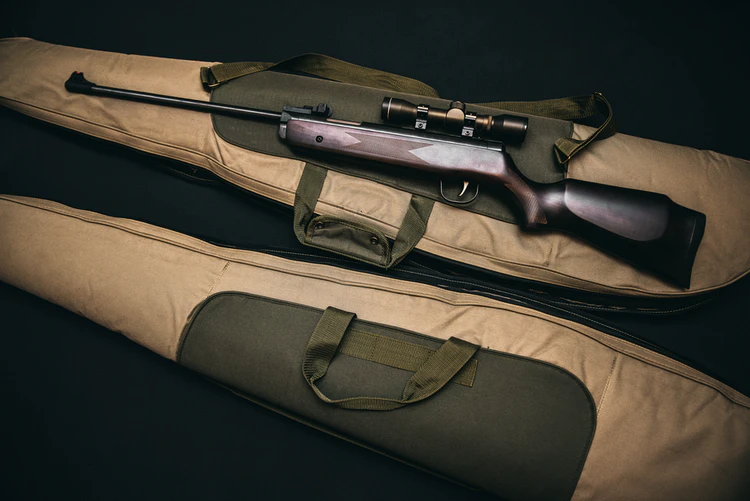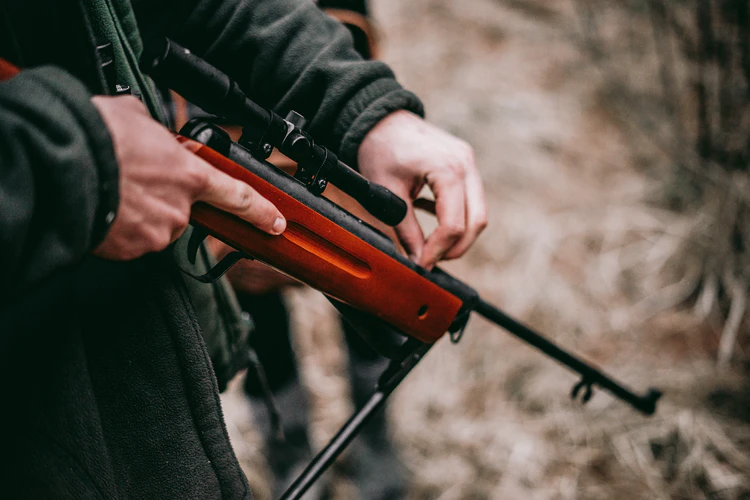Hunting can be an exhilarating and fulfilling experience if you have all your needs covered. Your gun or rifle is a vital piece of equipment, and you should consider several factors in your choice. There are legal requirements on the gauge, caliber, and energy produced by a projectile, and these laws vary from state to state. Hunting takes practice to develop proficiency and skill, which is why your gun choice is essential for your long-term engagement in hunting. If you have just received your hunting license or wish to hunt bigger games, you will find this easy guide helpful.
Rifle or Shotgun
Hunters may develop varying preferences based on experience and observing other hunters. Choosing between a rifle and shotgun depends on the comfort and convenience of use of the hunter and on how efficiently and cleanly it can kill the game.

Rifle
Rifles have a long history as weapons of choice for hunting. Hunting enthusiasts and tactical equipment retailers from slickguns recommend hunting rifles according to their classifications: semi-automatic, lever-action, and bolt-action. The categorization is based on their actions or the mechanism that makes the moving parts work and how they cycle rounds of ammunition. Bolt-action rifles have a simple design and manual cycling action, making their operation and maintenance simple. Lever-action rifles also require manual cycling but through cocking the handle located near the trigger guard area. They have shorter barrels, making them easier to handle, position, aim, and fire. Semi-automatic rifles draw their inspiration from the Armalite AR-15, manufactured between the late 50s and early 60s. Semi-automatics are often called self-loading rifles due to their mechanism that automatically loads cartridges into the chamber. It makes the gun ready to fire a subsequent shot without input from the user. Its versatility makes it a popular choice among the young generation of hunters.
Shotgun
As mentioned earlier, states have different hunting requirements, with some requiring using only shotguns. Like rifles, shotguns are classified according to their actions: pump-action, bolt-action, and semi-automatic action. The pump-action shotgun operates by sliding the forestock towards the gun’s rear to eject the cartridge or shotshell from the chamber. Sliding the forestock back towards the muzzle readies the rifle for loading another cartridge or shell. This shotgun type is convenient to use as it allows you to re-cock the gun without taking your eyes off of the target. The bolt-action shotgun has the same operating mechanism as its rifle counterpart, where you load cartridges or shells like opening or closing a door bolt. Its simple mechanism makes it accurate, dependable, and convenient to use. A semi-automatic shotgun also uses magazines with multiple shells or cartridges that automatically load the chambers once the bolt’s operating handle is pulled back and let go. Its convenience allows for efficient kills and high success rates.
Caliber Options
The caliber of your gun is another thing to consider in your hunting equipment selection. The caliber or bore diameter of the barrel can depend on the area you will be hunting on and the type of game.
Open-field hunting of small to medium-sized games requires long-range shots with high velocities. Rifles with long barrels are ideal for open-field since they support flat-shooting cartridges. Bolt-action rifles with barrels and chambers supporting .22-250 Remington to .338 Lapua Magnum are excellent choices for accuracy and efficiency. The more exposure and experience you get from hunting, the easier it will be for you to explore the caliber options and cartridges you will be using. As important as the caliber type is the scope you will be using. You need excellent visual coverage and information to guide the range of your gun’s bullets. Start with scopes having 5x magnification or higher.
Stand hunting is ideal for areas with dense timber. Here, you will need a lightweight, compact, and easy-to-handle rifle or shotgun to easily get in position. If you are new to hunting in these areas, .243 and .30-30 Winchester are great picks with reliable accuracy. The 7mm-08 Remington and .30-06 Springfield are excellent alternatives. A recommended setup for a standard 7-pound bolt-action rifle with 20” to 20” barrel length is with either the .270 Winchester or .30-06 Springfield. Consulting with gun and hunting experts will help you select versatile and accurate rifles, some even exceeding average distance shots and reaching 400 yards. For stand hunting in the woods, a 3 to 9x scope is recommended for excellent range and accuracy.
Stock Design and Durability
Your hunting rifle or shotgun will be your trusty weapon of choice for a long time. Thus, you must have a steady hunting gun for a long time to help improve your hunting skills over time. Aside from the type of gun action and barrel or caliber, you will also need to consider the quality stock that is fitted into your rifle. An excellent stock should effectively hold the action and fit the shooter. It usually has a high comb to align the scope’s optic and give you an excellent field of vision. The grip should have the right size and openness to allow you to take confident and comfortable shots. The length of the forend should be sufficient to allow a secure forward grip and facilitate the use of a shooting stick or rest to improve accuracy.
The rigidity and bedding are two factors that affect rifle durability. You would not want a stock that bends or breaks right when you need to take that crucial shot. Some hunters prefer a wooden stock not only for its aesthetic impact but also for its durability and added weight, which minimizes recoil. Some hunters prefer stocks made of synthetic materials, such as Kevlar, fiberglass, and plastic due to their excellent moisture resistance and rigidity. Whichever choice you make, if you got the durability of your stock covered, you’ll have a trusty hunting gun with you.
There are still other factors you will come across and add as essential for hunting. Your gun’s performance and condition are crucial to your continued hunting endeavors and improvement in the future. A gun you are comfortable with gives you confidence and pushes you to hone your hunting skills further. Next time you head out to a gun store, have a list of things you want in your gun and become a versatile hunter.






